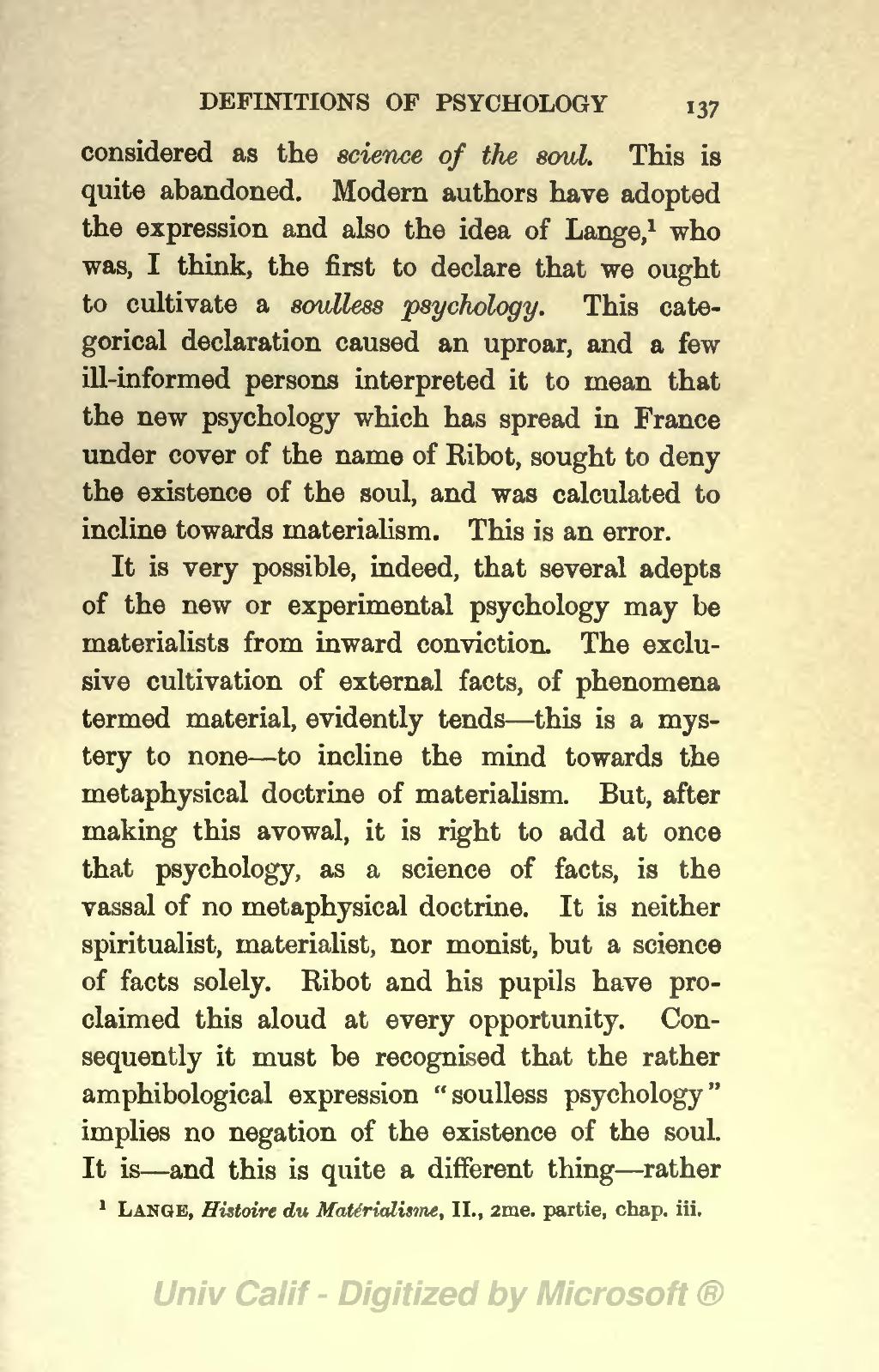considered as the science of the soul. This is quite abandoned. Modern authors have adopted the expression and also the idea of Lange,[1] who was, I think, the first to declare that we ought to cultivate a soulless psychology. This categorical declaration caused an uproar, and a few ill-informed persons interpreted it to mean that the new psychology which has spread in France under cover of the name of Ribot, sought to deny the existence of the soul, and was calculated to incline towards materialism. This is an error.
It is very possible, indeed, that several adepts of the new or experimental psychology may be materialists from inward conviction. The exclusive cultivation of external facts, of phenomena termed material, evidently tends—this is a mystery to none—to incline the mind towards the metaphysical doctrine of materialism. But, after making this avowal, it is right to add at once that psychology, as a science of facts, is the vassal of no metaphysical doctrine. It is neither spiritualist, materialist, nor monist, but a science of facts solely. Ribot and his pupils have proclaimed this aloud at every opportunity. Consequently it must be recognised that the rather amphibological expression “soulless psychology” implies no negation of the existence of the soul. It is—and this is quite a different thing—rather
- ↑ Lange, Histoire du Matérialisme, II., 2me. partie, chap. iii.
